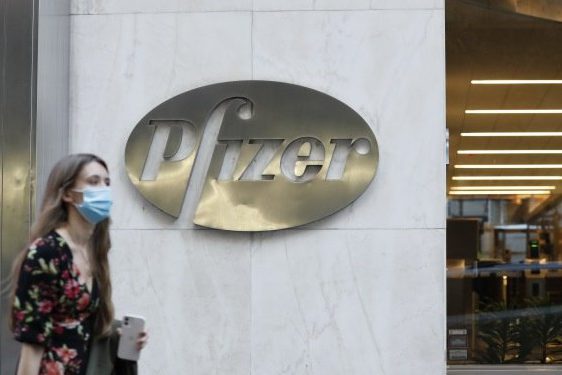December 11th local time, several U.S. media revealed that the White House Chief of Staff had issued a “threat” to the Director of the U.S. Food and Drug Administration (FDA): on the 11th, Pfizer’s coronavirus vaccine would be approved, otherwise the work would be in danger.
Later that day, the U.S. Food and Drug Administration (FDA) officially announced that it would officially approve the emergency use authorization of Pfizer vaccine.
However, FDA Director Stephen Hahn immediately denied the White House’s claim that he “pressured” the FDA agency. According to the National Broadcasting Corporation (ABC), Hahn responded on the 12th local time that the relevant statements were “unaccurate” and “untrue”.
With the approval of Pfizer vaccine, Reuters reported that the vaccination work in the United States will begin as early as next Monday (14th).

FDA Director: I’m not threatened
According to ABC News, Hahn told reporters on the morning of the 12th, “The media reported that I was threatened to be fired if I could not complete [authorized] work by a certain date. This is inaccurate.
Hahn noted that Pfizer’s vaccine was approved later on the 11th because scientific data showed that the vaccine was ready, not because of “any other external pressure”, and that he would “absolutely” approve the vaccine.
According to Fox News on the 12th, Hahn also refuted the matter in a statement. He said, “The description of the telephone conversation with the White House Chief of Staff is not true.” Earlier, U.S. media revealed that White House Chief of Staff Mark Meadows and Hahn made a phone call on the morning of the vaccine approval.
Although Hahn denied the claim that the White House was “pressured”, ABC News pointed out that the White House was really anxious about the approval and distribution of the coronavirus vaccine.
Hahn’s remarks came after U.S. President Trump hinted on the morning of the 11th that he refused to transfer the distribution of the coronavirus vaccine to the incoming Biden administration. “They want to come and take over ‘one of the greatest and fastest medical wonders in modern history,’” he tweeted.
On the same day, Trump also tweeted a criticism that the FDA handled the vaccine as a “huge and slow turtle”, while warning FDA Director Hahn that “it’s time to come up with the vaccine” and “don’t play tricks on me, it’s important to save lives”. Immediately after that, U.S. Secretary of Health and Human Services Alex Aza also shouted that the emergency authorization of Pfizer vaccine is imminent, and vaccinations may start as early as Monday.
Vaccination as early as next Monday
The COVID-19 situation in the United States is becoming more and more serious in autumn and winter. At present, the cumulative number of confirmed COVID-19 cases in the United States has exceeded 16 million, and the cumulative number of deaths is close to 300,000. After the Pfizer vaccine was approved, the distribution and vaccination of vaccines in the United States were also under way.
According to Reuters on the 12th, Pfizer and its German partner BioNTech plan to start shipping vaccines to the most affected states in the United States on Sunday (13th), and the first batch of large-scale coronavirus vaccination programs in the United States will start as early as next Monday (14th).
According to the report, Gustave Perna, an army general responsible for organizing the distribution of the vaccine in the United States, revealed the news at a press conference that day.
Pfizer’s vaccine will be delivered to 145 supply points across the U.S. on Monday, Perna said. The elderly population of healthcare workers and care facilities is expected to be the first 2.9 million doses of vaccine this month, with health care workers being vaccinated as soon as Monday.
“While months of preparations have taken place, distributing vaccines to as many as 330 million recipients still poses a major challenge,” Perner added. For example, the transportation of vaccines is demanding, and vaccines must be kept at minus 70 degrees Celsius.
It is worth noting that the United Kingdom is the first country in the world to approve the distribution and vaccination of Pfizer vaccine. On December 8th local time, the United Kingdom officially launched a large-scale coronavirus vaccination program. On the first day of vaccination, two people had adverse reactions, but then recovered well.
The British drug regulator immediately issued a warning that people with a history of severe allergies should not be vaccinated against Pfizer against the novel coronavirus.



